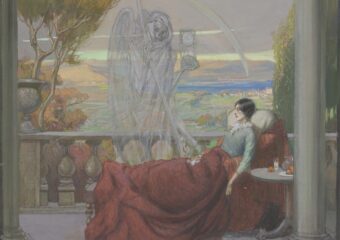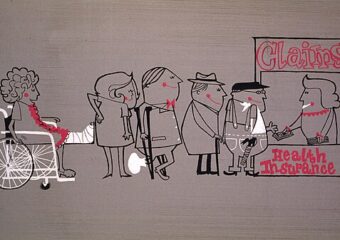Director: Aisling Walsh
Screenwriter: Andrea Gibb
Production: BBC One and STV Productions
Initial Release Date: December 8, 2019
Run Time: 88 minutes
Viewed on Public Broadcasting System Masterpiece: January 30, 2021
According to the Art:
The movie can be approached as a mystery with dementia as a wrinkle, or as a dementia story with mystery as a wrinkle. As a movie focusing on dementia, it prompts the haunting possibility that people with advanced dementia may still possess more cognitive ability than they are credited, and that language problems dementia can cause may obscure retained recall and cognitive functions.
Synopsis:
Maud’s dear friend Elizabeth is missing, suddenly. Maud’s dear older sister Sukey is missing, from long ago. And, Maud’s mind is missing, more and more. These three facts and how they relate to one another form the matrix of this movie. Maud Horsham is an elderly widow living alone with help from a home health aide’s daily visits, and from an attentive, if occasionally resentful daughter and a loving teenage granddaughter. She is well into the inexorable decline dementia brings, but at a stage where the support in place and reminder notes she leaves around are enough to keep her functioning.
On a routine visit to her friend Elizabeth, and while they dig in Elizabeth’s garden, Maud comes across the top of a compact that immediately takes her mind to a scene seventy years before when her sister Sukey was applying makeup with what looks to Maud as the same compact Sukey had in her hand. This flashback starts the story of Sukey’s unsolved disappearance as a young adult. A couple of days later, Maud and Elizabeth are to meet outside the Salvation Army store where they both once worked. Elizabeth never shows.
Elizabeth is Maud’s only remaining friend, and Maud sets off to find her. Her search triggers many flashbacks and hallucinations from the time of Sukey’s earlier disappearance, which she then becomes determined to solve. Maud’s worsening dementia often frustrates her own efforts in these parallel missions and also causes family, friends, and officials to doubt her findings and assertions. The parallel stories each have twists, turns, and surprises all the while Maud’s dementia is progressing to where she can no longer live on her own. Nevertheless, Elizabeth is found, Sukey’s grave is found, but Maud’s mind is never to be found again.
Analysis:
The movie can be approached as a mystery with dementia as a wrinkle, or as a dementia story with mystery as a wrinkle. As this site focuses on how the Humanities offer a variety of ways to see and understand how health problems affect people, I concentrate on how the movie depicts dementia.
Early in the movie, Maud’s dementia is in a stage where she needs help with activities of daily living, but also when she is aware of her declining mental acuity. We see the types of notes she makes for herself and her dependence on them: “Today Elizabeth’s house gardening.” We see her struggle to access words and memories:
I want to scream, but it won’t come out. It’s all stuck in here. All the feelings are in here.
I don’t like it, I don’t like all the blanks.
I can’t keep things in my brain.
The movie suggests, however, that mental deterioration from dementia is not uniform in any given person. As Maud’s dementia obliterates some mental functions, she’s still able to recall and assemble facts and memories into a coherent reconstruction of events that solve the disappearances of Elizabeth and Sukey. But, family, friends, and officials are too frustrated and fatigued with Maud’s erratic behaviors and advanced memory problems to allow any credence to her insistence that she knows something of both Elizabeth’s and Sukey’s fates. How can someone who cannot recognize her own daughter figure out and describe two separate missing person cases, one of which requires remembering events seventy years before? The movie thus prompts the haunting possibility that people with advanced dementia may still possess more cognitive ability than they are credited, and that language problems dementia can cause may obscure retained recall and cognitive functions.
Glenda Jackson’s portrayal of Maud’s dementia is particularly poignant and affecting, and has been recognized accordingly (vide infra). Other notable portrayals of dementia of late have been Frank Langella’s in The Father, Elaine May’s in The Waverly Gallery, and Jonathan Pryce’s The Height of the Storm.
Also:
Adapted from novel by Emma Healey and published by Harper 2014.
Awards:
British Academy Television Award for Best Actress (Glenda Jackson)
International Emmy Award for Best Performance by an Actress (Glenda Jackson)
Turn of Mind by Alice LaPlante and The Last Days of Ptolemy Grey by Walter Mosley are two novels featuring a person with dementia involved in a mystery.
A version of this post is at the NYU Literature, Art and Medicine Database.



